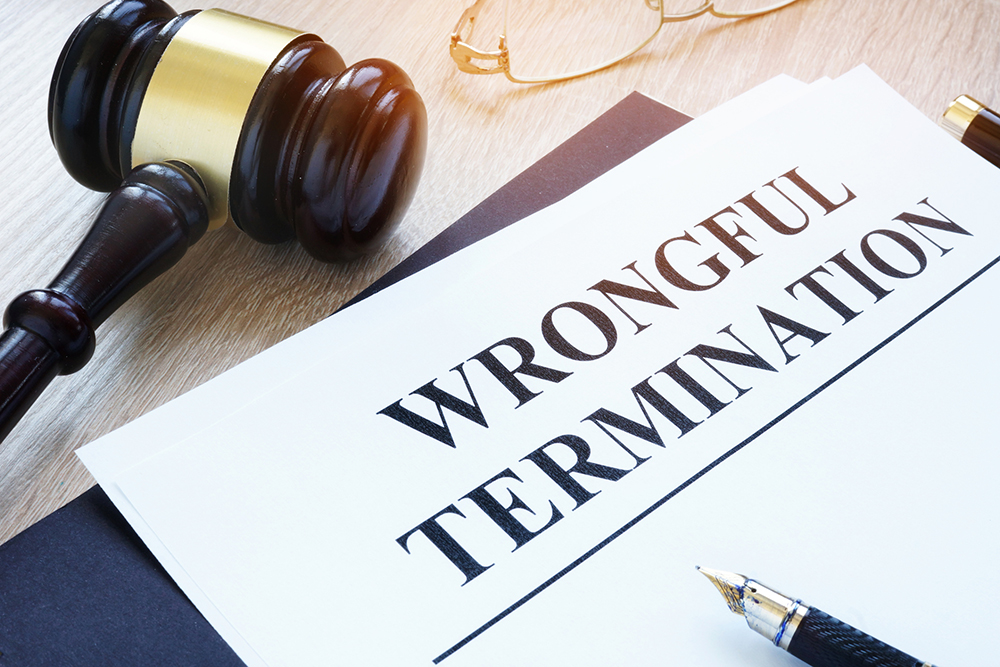After two former Drug Enforcement Administration (DEA) employees filed wrongful termination claims, the U.S. 4th Circuit Court of Appeals (which covers North Carolina, South Carolina, and West Virginia employers) recently found their failure to cooperate with the investigation initiated at their own request wasn’t protected activity. Further, their discharge wasn’t unlawful under either Title VII of the Civil Rights Act of 1964 or the Uniformed Services Employment and Reemployment Rights Act (USERRA). The court’s opinion highlights the fact that even if employees have engaged in protected activity, you still have the right to legitimately discipline them for unprotected misconduct.
Lisa Kitlinski and her husband, Darek, began working for the DEA in 1997 and 1998, respectively. In 2011, the agency promoted Lisa to a position at its headquarters in Arlington, Virginia. Afterward, Darek also sought to transfer within the DEA to the D.C. area. He submitted multiple transfer requests and applied for vacant positions, but the agency denied the requests and selected other candidates for the vacant jobs.
Meanwhile, Darek also began serving on active duty with the U.S. Coast Guard in D.C. and took a leave of absence from the DEA. After he was called to active duty, he filed equal employment opportunity (EEO) complaints alleging violations of Title VII and USERRA (a federal law protecting the employment rights of individuals who leave their jobs because of military service).
In September 2014, Darek found a DEA-issued Blackberry device lodged between the windshield wipers and hood of Lisa’s car. The device was later determined to belong to an agency employee who worked in HR. The Kitlinskis claimed someone within the agency planted the Blackberry in Lisa’s car to track their whereabouts or record their conversations.
On October 2, Lisa reported the Blackberry incident, and the DEA’s Office of Professional Responsibility (OPR) opened an inquiry. As part of the investigation, the OPR directed Lisa to appear for interviews. She initially declined to appear or turn over the Blackberry to investigators. She eventually appeared for an interview but declined to answer various questions.
The OPR also gave Darek a written notification directing him to appear for an interview. He declined to attend the interview, and the investigators informed him that failure to comply with the directive could result in disciplinary action.
On May 27, 2015, the then-chair of the board issued letters recommending the termination of the Kitlinskis’ employment based on their conduct during the OPR investigation. After the couple submitted responses contesting the recommendation, they were terminated.
The Kitlinskis filed a lawsuit against the DEA in Virginia. The complaint asserted, among other things, wrongful termination claims under Title VII and USERRA. The trial court entered judgment for the agency on the wrongful termination claims, and the couple appealed the decision to the 4th Circuit.
4th Circuit Weighs In
Darek’s USERRA claim. To succeed on a USERRA claim, a servicemember must show the employer’s adverse action was taken based on his performing as a member in a uniformed service and the service was “a motivating factor” in the action. The 4th Circuit concluded the Kitlinskis offered no evidence Darek’s military service or his prior USERRA-protected activity was a motivating factor in his termination.
In reaching the conclusion, the 4th Circuit stressed USERRA doesn’t enable a servicemember to (1) refuse to comply with his civilian employer’s reasonable requests to participate in an internal investigation into his own allegations of wrongdoing for reasons unrelated to his military service and then (2) claim protection from the adverse consequences flowing from the decision.
Lisa’s USERRA claim. Lisa asserted the DEA terminated her employment in retaliation for her participation in or support of one of Darek’s USERRA claims. The 4th Circuit noted she was required to show her USERRA-protected activity was “a motivating factor” in the agency’s decision to terminate her.
The 4th Circuit concluded, however, the record showed Lisa’s refusal to answer questions during the OPR investigation was the reason for her discharge, and such conduct isn’t protected under USERRA.
Wrongful termination claims. The 4th Circuit made similar conclusions about the Kitlinskis’ Title VII wrongful termination claims. That is, they offered no evidence showing the DEA terminated them for any reason other than their conduct during the OPR investigation initiated at Lisa’s request for the nondiscriminatory purpose of probing their own allegations of misconduct. In short, their conduct wasn’t protected under Title VII, and no unlawful discrimination occurred.
Fine Line Between Protected, Unprotected Conduct
The 4th Circuit’s recent opinion highlights the fact that even if employees have engaged in protected activity, you may discipline them for misconduct that isn’t protected (e.g., they’re disruptive and insubordinate during the course of an investigation). In reality, though, there’s often a fine line between protected and unprotected activity, making it extremely risky to discipline an employee who may have committed misconduct after (or while engaging in) otherwise protected activity.
Thus, if an employee has engaged in protected activity, you should tread carefully before taking any adverse action for what you believe to be otherwise unprotected conduct. For example, you should ensure (1) the purported misconduct actually occurred and (2) you have a practice of disciplining other employees for similar conduct or would otherwise have disciplined another worker for the same conduct, regardless of any protected activity.
Patricia Holliman is an attorney with Womble Bond Dickinson (US) LLP in Winston-Salem, North Carolina. You can reach her at patricia.holliman@wbd-us.com.

